Grasses and agaves, yes, of course, solidity and movement, so why not grasses and aloes?
A youngish Aloe marlothii and the evergreen cold blue steel blades of Blue Oat Grass, Helicotrichon sempervirens.
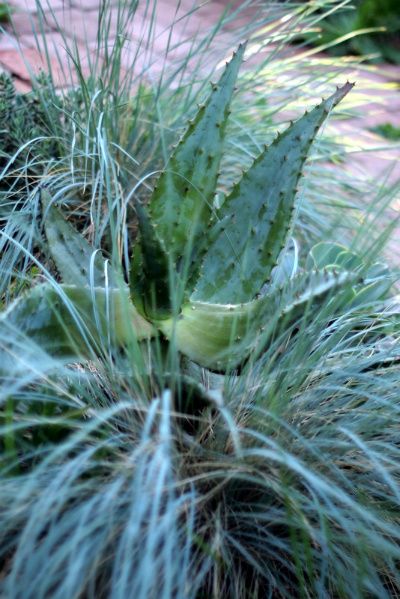
I can’t imagine keeping a plant in the garden with really awful leaves. Even so, participating in Pam’s Foliage Followup to Bloom Day is always a puzzle as to what to include without getting too repetitive. I don’t believe I’ve ever included this odd, neoclassical scene in the very back of the garden.
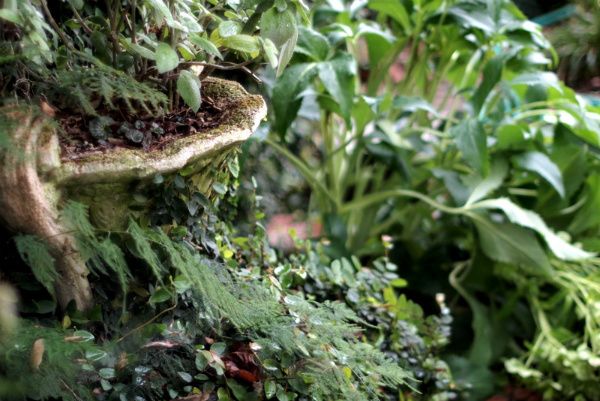
The salvaged urn was a gift from friends moving to Eugene, Oregon, years ago and leans against the back wall propped up on a base of large rocks. It was nearly swallowed up entirely this winter by a shroud of creeping fig, Ficus repens. The fig covers the back wall, southern boundary, essentially rendering it a 10-foot hedge, home to possums, lizards, and all manner of secretive creatures. It needs clipping twice a year, now overdue for its spring clip. Plectranthus argentatus manages to survive in the urn which has no drainage holes and is therefore seldom watered. Labrador violets, asparagus fern, and Corsican hellebores seed into the base of the wall too. Very Last Days of Pompeii.
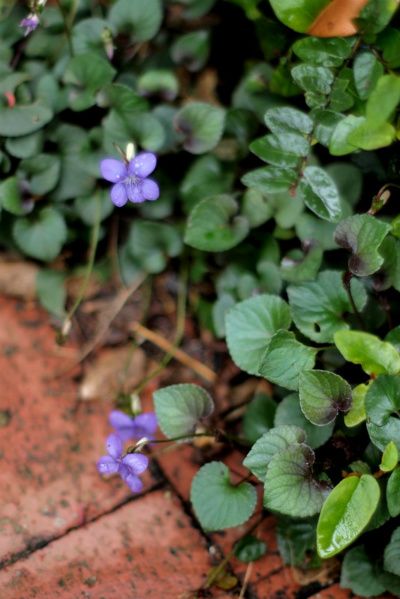
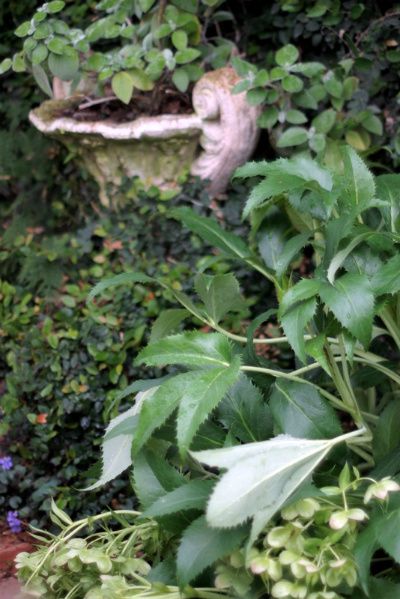
x Fatshedera lizei, rinsed clean from the rain.
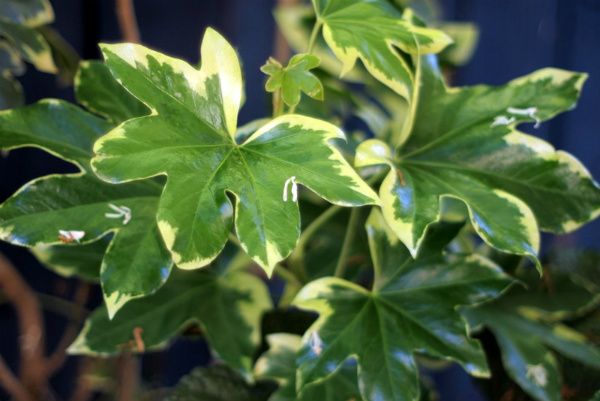
Pathway lined with succulents, echeverias and aeoniums, fresh growth of eucomis in the background.
Dark green, thyme-like mat grower is Frankenia thymifolia.
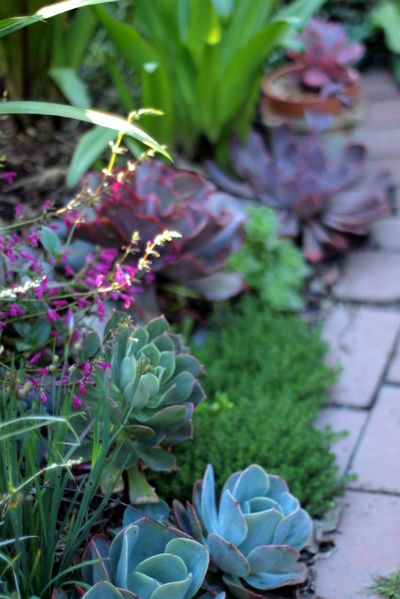

Please, Denise, with images like these (especially the last one), be as repetitive as you like. I do like your Last Days of Pompeii section too.
Beutiful post, as always! I love the contrast between the Agave and the Oat Grass…perfect textural partners 🙂
Your urn area looks so deep-south ! A Ryan Gainey moment.
Pam, I can’t believe how mature your garden looks now!
Scott, the oat grass is a fave and perfect stature for succulents.
Kathy, all I need now is a funny hat and to paper my walls with tetrapanax!